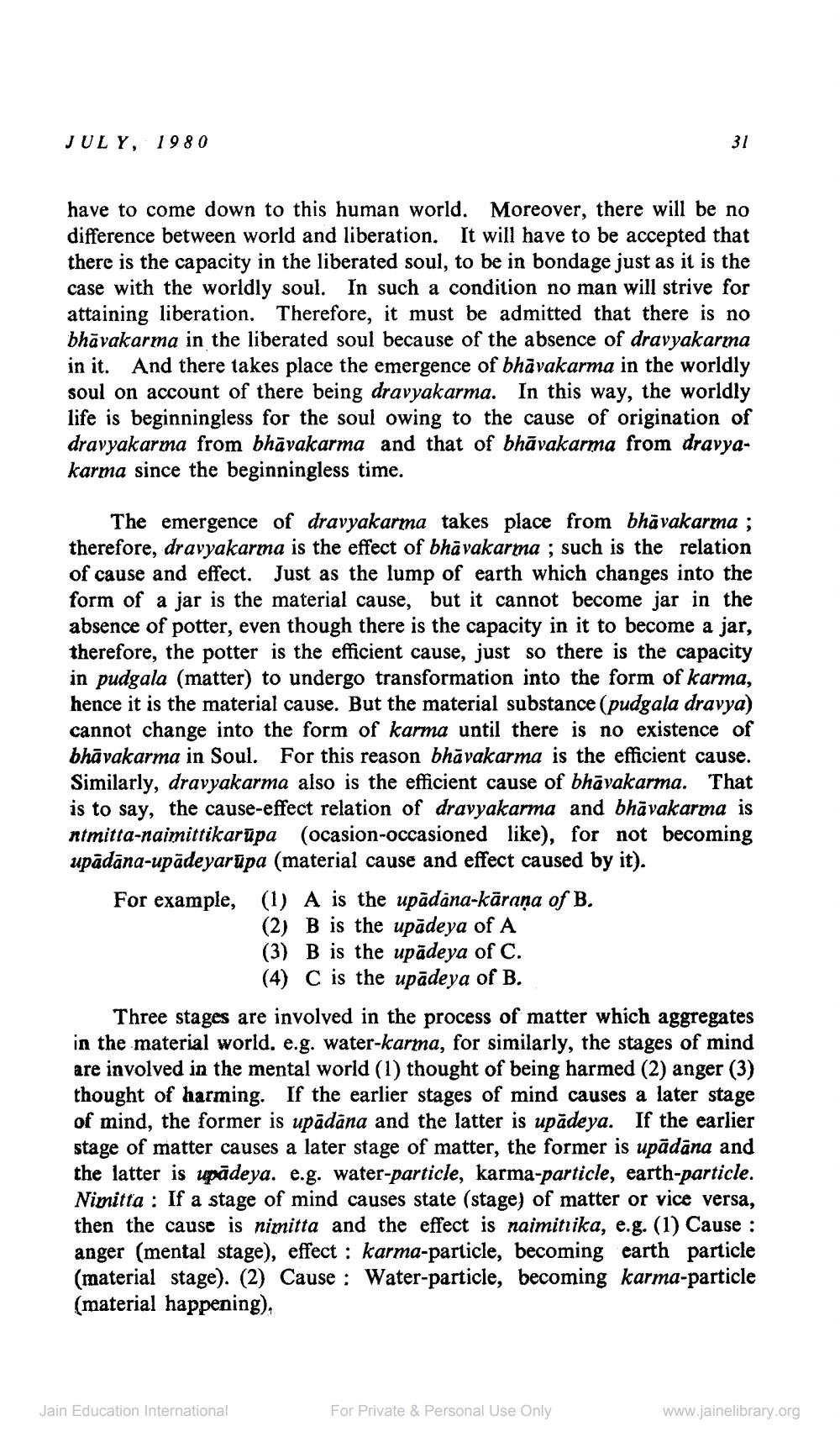________________
JULY, 1980
have to come down to this human world. Moreover, there will be no difference between world and liberation. It will have to be accepted that there is the capacity in the liberated soul, to be in bondage just as it is the case with the worldly soul. In such a condition no man will strive for attaining liberation. Therefore, it must be admitted that there is no bhāvakarma in the liberated soul because of the absence of dravyakarma in it. And there takes place the emergence of bhāvakarma in the worldly soul on account of there being dravyakarma. In this way, the worldly life is beginningless for the soul owing to the cause of origination of dravyakarma from bhavakarma and that of bhāvakarma from dravyakarma since the beginningless time.
The emergence of dravyakarma takes place from bhavakarma ; therefore, dravyakarma is the effect of bhavakarma; such is the relation of cause and effect. Just as the lump of earth which changes into the form of a jar is the material cause, but it cannot become jar in the absence of potter, even though there is the capacity in it to become a jar, therefore, the potter is the efficient cause, just so there is the capacity in pudgala (matter) to undergo transformation into the form of karma, hence it is the material cause. But the material substance (pudgala dravya) cannot change into the form of karma until there is no existence of bhavakarma in Soul. For this reason bhāvakarma is the efficient cause. Similarly, dravyakarma also is the efficient cause of bhavakarma. That is to say, the cause-effect relation of dravyakarma and bhāvakarma is ntmitta-naimittikarupa (ocasion-occasioned like), for not becoming upādāna-upadeyarupa (material cause and effect caused by it).
For example, (1) A is the upādāna-kāraṇa of B.
(2) B is the upadeya of A
(3) B is the upadeya of C. (4) C is the upādeya of B.
31
Three stages are involved in the process of matter which aggregates in the material world. e.g. water-karma, for similarly, the stages of mind are involved in the mental world (1) thought of being harmed (2) anger (3) thought of harming. If the earlier stages of mind causes a later stage of mind, the former is upādāna and the latter is upădeya. If the earlier stage of matter causes a later stage of matter, the former is upãdāna and the latter is upadeya. e.g. water-particle, karma-particle, earth-particle. Nimitta: If a stage of mind causes state (stage) of matter or vice versa, then the cause is nimitta and the effect is naimitrika, e.g. (1) Cause: anger (mental stage), effect: karma-particle, becoming earth particle (material stage). (2) Cause: Water-particle, becoming karma-particle (material happening),
Jain Education International
For Private & Personal Use Only
www.jainelibrary.org




